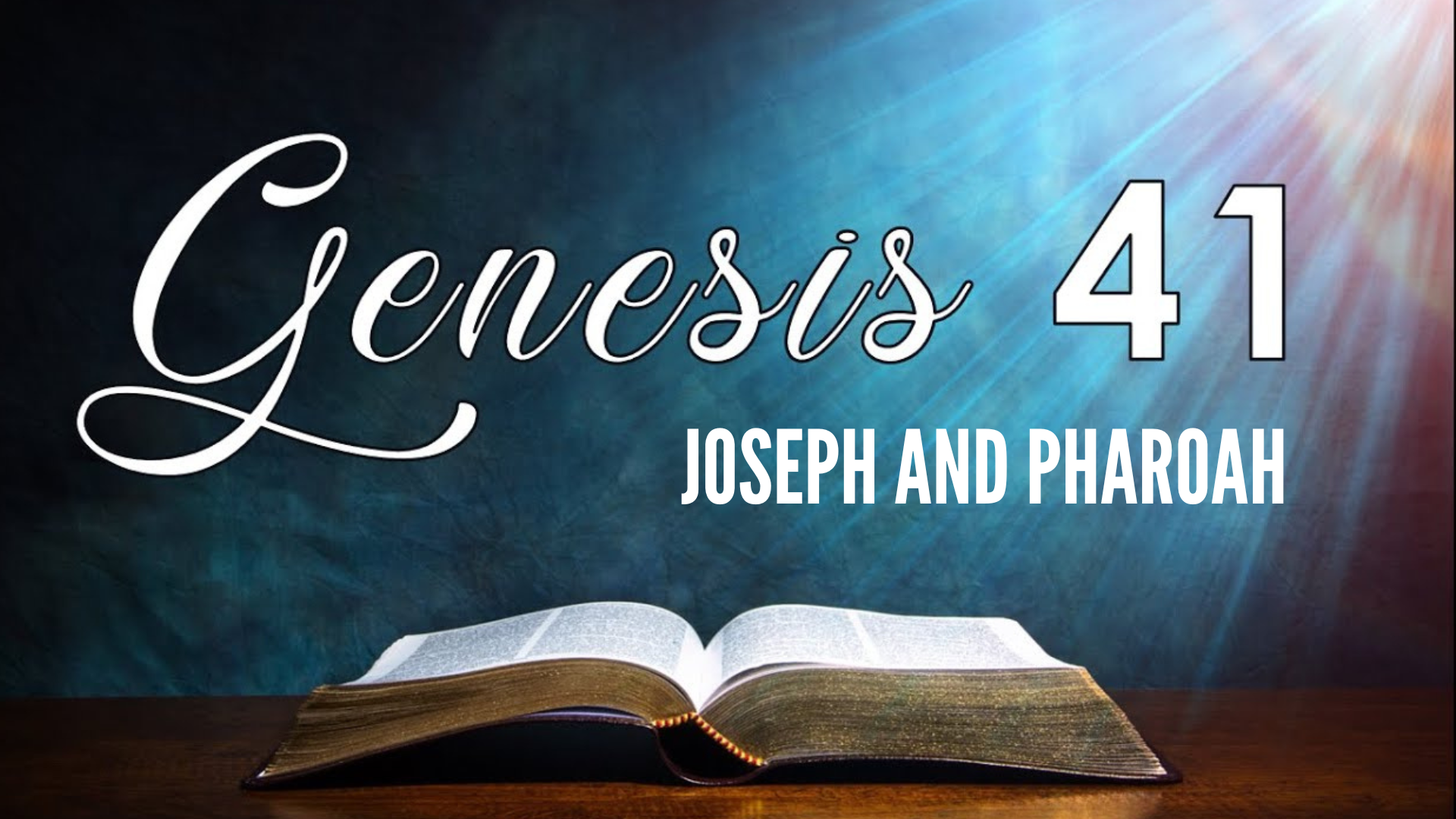THE GROWING CHURCH
1. Gladly Receiving the Word (Acts 2:4-5, 14-18, 37-41)
A. International Impact (Acts 2:4-5)
B. Prophetic Preaching (Acts 2:14-18)
C. Remarkable Response (Acts 2:37-41)
2. Christian Fellowship and Ministry (Acts 2:42-47; 3:1-12; 4:1-4)
A. Church Alive! (Acts 2:42-47)
B. Healing in Jesus’ Name (Acts 3:1-12)
C. Bold Witnessing (Acts 4:1-4)
3. The Word, the Spirit, the Multitude (Acts 4:5-32)
A. Powerful Defense (Acts 4:5-12)
B. Strict Ruling (Acts 4:13-22)
Central Truth: Faithfulness to Christ and church growth go hand-in-hand.
Focus: Discover and embrace the spiritual dynamics that make for church growth.
Evangelism Emphasis: God’s will is that people will be saved, and be added to a local church.
Text: “The Lord added to the church daily such as should be saved” (Acts 2:47).
INTRODUCTION
Just days after Jesus ascended to Heaven, Simon Peter was one of 120 believers baptized in the Holy Spirit on the Day of Pentecost. Peter then preached powerfully to an audience that was predominantly Jewish. But the message he delivered is for all people. It starts and finishes with Jesus. It offers hope to the hopeless, and life to those who are spiritually dead. It is a perfect example of Christ-centered preaching.
The response to Peter’s message was encouraging. Not everyone present reacted affirmatively, but at least three thousand people did. These new converts went out from this meeting to share their exciting discovery with others.
After the Day of Pentecost, the believers in Jerusalem began to encourage one another. They enjoyed times of rich fellowship together. They enthusiastically permeated Jerusalem with their belief. Through their witness, the Lord added to their number daily people who were being saved.
Today’s lesson gives us an example of what can be accomplished through preaching of the Word. When Christ is exalted, souls are saved. When Christ is given His rightful place, believers grow in fellowship.
However, not everything will go smoothly. As the Word is preached and the Church grows, persecution will come. Thankfully, God will meet that challenge with more outpourings of His power.
1. GLADLY RECEIVING THE WORD
A. International Impact (Acts 2:4-5)
4 And they were all filled with the Holy Ghost, and began to speak with other tongues, as the Spirit gave them utterance. 5 And there were dwelling at Jerusalem Jews, devout men, out of every nation under heaven.
A multitude always gathered in Jerusalem to celebrate the Feast of Pentecost. This year, however, the international crowd saw and heard things that “amazed” all of them (v. 7). More than one hundred Galileans were speaking the wonderful words of God in languages they had never learned.
This miracle was taking place because 120 followers of Jesus had been “suddenly” (v. 2) “filled with the Holy Ghost” (v. 4), just as Jesus had promised. But Jesus had not told them they would speak “in other languages, as the Holy Spirit gave them this ability” (v. 4 NLT). The multitude, hearing their languages spoken by the believers, asked, “How can this be?”(v. 7 NLT).
- Why do you suppose the Lord chose to pour out His Spirit on the Day of Pentecost in Jerusalem?
B. Prophetic Preaching (Acts 2:14-18)
14 But Peter, standing up with the eleven, lifted up his voice, and said unto them, Ye men of Judaea, and all ye that dwell at Jerusalem, be this known unto you, and hearken to my words: 15 For these are not drunken, as ye suppose, seeing it is but the third hour of the day. 16 But this is that which was spoken by the prophet Joel; 17 And it shall come to pass in the last days, saith God, I will pour out of my Spirit upon all flesh: and your sons and your daughters shall prophesy, and your young men shall see visions, and your old men shall dream dreams: 18 And on my servants and on my handmaidens I will pour out in those days of my Spirit; and they shall prophesy.
The Day of Pentecost was a day of miracles, and one of those miracles was the change evidenced in Simon Peter. The power and presence of the Holy Spirit were as evident in Peter’s sermon as they were in the manifestation of the gift of tongues. Only a few days before, Peter had denied the Lord; now he stands before a multitude in the streets of Jerusalem and boldly rebukes them for their unbelief. The only explanation for this newfound courage is the newly discovered power of the Holy Spirit. Peter presents his case with great skill and wisdom. Supported by the rest of the Eleven, he seeks to prove that Jesus of Nazareth is the Messiah, the divine Savior of the world.
In the introduction to his sermon, Peter gave a defense of the disciples against the charge of intoxication. He reminded his hearers that it was only the third hour since sunrise, and therefore it was too early for them to have had an opportunity to drink to excess. Also, drinking at this hour was contrary to Jewish custom.
Then Peter said what had happened on the Day of Pentecost had been foretold by one of their prophets. They had witnessed the fulfillment of the prophecy of Joel. Later, he would tell them that another Jew, even Jesus, had poured out what they saw and heard (see Acts 2:33).
Joel’s prophecy was set to be fulfilled in the “last days” (v. 17). The last days began with Christ’s first advent and will end with His second advent. The writer of
Hebrews said, “God, who at sundry times and in divers manners spake in time past unto the fathers by the prophets, hath in these last days spoken unto us by his Son” (1:1-2).
The description of the giving of the Spirit indicates His availability is plentiful and universal. These thoughts are expressed by the “pouring out” and by His being for “all flesh” (Acts 2:17). The first is in contrast to the limited manifestations of other ages, and the latter is in contrast to the few who were so endowed during the Old Testament era.
Of the outpouring of the Spirit there is no discrimination of gender, age, or position. Sons and daughters will speak by divine inspiration and with divine authority. Visions and dreams will be communicated to young and old. “Men and women alike” (v. 18 NLT) receive the Spirit and prophesy.
In contrast to this gracious outpouring of the Holy Spirit, there will be a Day of Judgment when wonders and signs will be manifested in the world of nature (vv. 19-20). These were to be understood as tokens of the advent of the Day of the Lord, “that great and notable day.” Then, Joel declared this to be a day of salvation to all who invoked “the name of the Lord” (v. 21). Salvation would no longer be confined to a peculiar people, but would be worldwide.
- Who can be saved (v. 21)? Once saved, who can prophesy (vv. 17-18)?
C. Remarkable Response (Acts 2:37-41)
38 Then Peter said unto them, Repent, and be baptized every one of you in the name of Jesus Christ for the remission of sins, and ye shall receive the gift of the Holy Ghost.
41 Then they that gladly received his word were baptized: and the same day there were added unto them about three thousand souls.
We must never underestimate the power of the gospel of Christ. The message that Jesus Christ died, was buried, rose again to life, and ascended to the Father cut to the heart of the crowd. Convinced that what Peter was saying was the truth, they sought to rectify their part in the rejection of Christ (v. 37).
In response to their question, “What shall we do?”, Peter told them to “repent, and be baptized” (v. 38). Repentance involves a change of mind and a change of action. A change in attitude without a change of heart is not true repentance. When the heart is changed, our actions will reflect that change.
Peter also called on his hearers to be baptized, thereby identifying with Christ in His death. Thus, the apostle asked those who had so recently demanded His crucifixion to identify with Jesus in that death. If they would repent of their sin and turn to God, and submit to baptism confessing Jesus as the Messiah, their sins would be forgiven. They would also receive the gift of the Holy Spirit.
Peter assured the Jews that the promise of the Holy Spirit was for them and for their children, the seed of Abraham. The promise was also for them “that are afar off,” meaning the Gentiles (v. 39).
Verse 40 says we are not given all that Peter said in this sermon. But the burden of what he said is given. He urged each individual to save themselves from this “crooked generation” (NLT).
The Jews who accepted Peter’s message were baptized. Their baptism was outward evidence that they had repented and were forgiven. In one day after one sermon, Jesus’ disciples had three thousand converts (v. 41)! This was as much a manifestation of the power of the Holy Spirit as were the other miraculous phenomena of the Day of Pentecost. It was also proof of the words of Jesus: “Verily, I say unto you, He that believeth on me, the works that I do shall he do also; and greater works than these shall he do; because I go unto my Father” (John 14:12).
- Why is water baptism vital?
2. CHRISTIAN FELLOWSHIP AND MINISTRY
A. Church Alive! (Acts 2:42-47)
42 And they continued stedfastly in the apostles' doctrine and fellowship, and in breaking of bread, and in prayers.
46 And they, continuing daily with one accord in the temple, and breaking bread from house to house, did eat their meat with gladness and singleness of heart.
The young believers showed the effects of Pentecostal power in daily life. First, they continued to seek instruction from the apostles—men who knew the Lord (v. 42). They were not satisfied to merely start the Christian journey; they wanted to move forward. As William Barclay said, “We should count it a wasted day when we do not learn something new and when we have not penetrated more deeply into the wisdom and the grace of God.”
These new believers also rejoiced in spiritual fellowship. They were brothers and sisters in Christ. As members of the family of God, they found strength in togetherness. The practical expressions of their fellowship were the “breaking of bread” and “prayers.” The regular observance of the Lord’s Supper reminded them of the Savior’s death. Also, they met frequently for prayer. They probably had their own established times for united prayer. In addition, they attended the public Jewish prayers. The church that participates in the Lord’s Supper, fully understanding its significance, and unites in believing prayer will be victorious.
In verse 43, the word fear implies a sense of awe. The people in and around Jerusalem were disturbed by what they heard in Peter’s sermon. He talked about signs on earth as evidence of the approach of the great and notable Day of the Lord. Their fears were heightened by the miracles God was working through the apostles. These signs were evidence of the divine presence in their midst.
These believers loved the Lord and one another so fervently that they sold their possessions and shared their goods to meet people’s needs (vv. 44-45). They had an intense feeling of responsibility for each other. If we have the same love in our hearts, we will share our blessings.
Verse 46 says the believers made a daily practice of going to the house of God. They went in a spirit of unity, and the Lord rewarded them with results. We can never overstate the importance of the Church. Most believers will testify that they were in church when they felt the guilt of their sins; there they felt the need of their Savior; and there they accepted Him into their lives.
Also, these believers were radiant Christians whose joy was a source of encouragement to one another and a means of gaining the favor of outsiders (v. 47). Christianity has a winsome attractiveness about it. The Lord honored their faithfulness and added daily to their number.
Working With the Lord
It is the Lord’s prerogative to add new members to His own community; it is the joyful duty of the community to welcome to their ranks those whom Christ has accepted.—F. F. Bruce
B. Healing in Jesus’ Name (Acts 3:1-12)
1 Now Peter and John went up together into the temple at the hour of prayer, being the ninth hour.
11 And as the lame man which was healed held Peter and John, all the people ran together unto them in the porch that is called Solomon’s, greatly wondering. 12 And when Peter saw it, he answered unto the people, Ye men of Israel, why marvel ye at this? or why look ye so earnestly on us, as though by our own power or holiness we had made this man to walk?
Of his prayer habits, David wrote: “Evening, and morning, and at noon, will I pray, and cry aloud: and he shall hear my voice” (Ps. 55:17). This pattern of praying three times a day was in keeping with the custom observed in the Jewish temple. The hours of public prayer were 9 a.m., 12 noon, and 3 p.m. The Jewish day began at 6 a.m. Thus, 3 p.m. would be the ninth hour. This was the hour of the evening sacrifice. Customarily, many people would congregate at the temple at this hour. So, at this time of prayer, Peter and John were going to the temple.
As Peter and John were about to pass from the outer to the inner courts of the temple, they came to the gate called “Beautiful” (Acts 3:2). In contrast to the magnificent gate, the eyes of Peter and John fell upon a man who had been lame from his mother’s womb. He was carried and laid daily at this gate to ask money of those who entered the temple. Peter and John looked intently at the man and encouraged him to look on them (v. 4). Their look conveyed two messages. First, they identified with the man in his problem. They empathized with him. Second, their look conveyed they knew the purpose and intent of God in this matter.
The compassionate look and the calm, confident expression of the apostles arrested the beggar’s attention (v. 5). However, Peter’s first statement must have been a disappointment to the paralyzed man. He was expecting to receive silver or gold from the apostles, but Peter said they did not have any (v. 6). Peter continued by saying they would share what they had. The apostle meant he had something of far greater value than silver or gold to offer. He offered the helpless man healing “in the name of Jesus Christ of Nazareth” (v. 6).
In an act of faith and obedience, Peter took the man by the hand and helped him up. Peter’s action was designed to strengthen the man’s faith. He instantly responded to that encouragement. He felt strength come into his feet and ankle bones (v. 7). The man “jumped up, stood on his feet, and began to walk! Then, walking, leaping, and praising God, he went into the Temple with them” (v. 8 NLT).
This was a notable healing. The healed man was well known. There were countless witnesses who could identify him. He had been paralyzed for forty years and had lain daily at the gate of the temple. Now, as he put his trust in the living Christ, he was given perfect soundness in an instant. These facts left the crowd in wonder and amazement.
The immediate result of the healing was to give Peter an opportunity to proclaim Christ. The commotion caused by the miracle brought the astonished crowd to the apostles. The healed man “held” on to them, identifying them as the ones who had touched God in his behalf (v. 11).
This miracle was a sign to the Jews that God was with the apostles. Every mighty work of God has a purpose behind it. No miracle is performed just for the sake of performance. The glory of God is tied to all His works.
The people knew something out of the ordinary had happened, but they did not know how to explain it. Peter could have claimed credit for this miracle. He could have talked about his own goodness and how it had brought him favor with God. He could have used this man to advance his own cause. Instead, he gave glory to God and exalted Jesus Christ. This is the key to being used in the service of the Master.
- How did this miraculous healing testify that Jesus had risen from the dead?
C. Bold Witnessing (Acts 4:1-4)
1 And as they spake unto the people, the priests, and the captain of the temple, and the Sadducees, came upon them, 2 Being grieved that they taught the people, and preached through Jesus the resurrection from the dead. 3 And they laid hands on them, and put them in hold unto the next day: for it was now eventide. 4 Howbeit many of them which heard the word believed; and the number of the men was about five thousand.
The healing at the temple gate captured the city’s attention. Peter used this occasion to preach the message of Christ. But as he was speaking, he was interrupted. The priests, the captain of the temple, and the Sadducees approached Peter and his associates (v. 1). It was the duty of the captain to keep order in the temple precincts.
The Sadducees feared the apostles’ influence over the multitude. They were also threatened by the doctrine of the Resurrection presented by the apostles. It was their rejection of the doctrine of the Resurrection that seems to have motivated the arrest of the apostles (v. 2).
After being used of God to bring healing to the lame man and after being accepted by the people, Peter and John came into disfavor with the rulers. They seized them, arrested them, and put them in custody. It was not convenient to assemble the Sanhedrin. This was the time for the evening sacrifice, and it was not usual for the council to meet at that hour. Furthermore, it was illegal for Jewish trials to be held at night, so the apostles were kept in the public prison until the next day (v. 3).
In spite of the apostles’ arrest and imprisonment, many believed their message (v. 4). The total number of believers at this point reached about five thousand (exclusive of women and children).
Supernatural Demonstration
Adversity is always unexpected and unwelcomed. It is an intruder and a thief, and yet in the hands of God, adversity becomes the means through which His supernatural power is demonstrated.—Charles Stanley
3. THE WORD, THE SPIRIT, AND THE MULTITUDE
A. Powerful Defense (Acts 4:5-12)
10 Be it known unto you all, and to all the people of Israel, that by the name of Jesus Christ of Nazareth, whom ye crucified, whom God raised from the dead, even by him doth this man stand here before you whole. 11 This is the stone which was set at nought of you builders, which is become the head of the corner. 12 Neither is there salvation in any other: for there is none other name under heaven given among men, whereby we must be saved.
In order to consider the deeds of the apostles, a meeting of the Sanhedrin was called (v. 5). Annas and Caiaphas (v. 6) had been involved in the trial and condemnation of Jesus. They must have had a special interest in stopping the spread of the gospel of Christ, for the success of the Gospel served to underscore the wickedness of their deed.
The rulers wanted to know who gave Peter and John the authority to preach and to heal the sick, since the officials had not given them such rights. The council also implied that magical practices were involved (v. 7). If the apostles were found guilty of this charge, they could be sentenced to death by the Sanhedrin.
Simon Peter was the spokesman before the Sanhedrin. This was the same man who cringed before a maid’s question and denied Christ in Pilate’s judgment hall. But now, “filled with the Holy Ghost” (v. 8), he boldly answered the council.
Peter knew the healing of the beggar was undeniable and everyone reckoned it a “good deed” (v. 9). The only question was, “By what authority and by what power had it been done?” Had it been done by the authority and power of Jesus of Nazareth, as Peter had declared (3:6, 16)? Yes, Peter reaffirmed (4:10).
Peter declared God had outwitted the rulers of the Jews (v. 11). He had brought victory out of defeat by raising Christ from the dead. Christ (“the stone”) was “set at nought” (rejected) by the “builders” (rulers of the Jews), but God made Him the “head of the corner” (raised up in power).
In verse 12, Peter said the door of eternal life is open to all who believe on Jesus Christ. This closes the door forever to those who reject Him. There is only one way to salvation.
- How can we lovingly, but firmly, declare the truth stated in verse 12 to a religiously diverse society?
B. Strict Ruling (Acts 4:13-22)
17 But that it spread no further among the people, let us straitly threaten them, that they speak henceforth to no man in this name. 18 And they called them, and commanded them not to speak at all nor teach in the name of Jesus. 19 But Peter and John answered and said unto them, Whether it be right in the sight of God to hearken unto you more than unto God, judge ye.
The Sanhedrin marveled at the boldness with which Peter and John proclaimed the message of Christ. These rulers were surprised that these men, who had not been educated in the schools of the rabbis and who were not accustomed to speaking in public, could declare their faith with such clarity. The rulers acknowledged Peter and John had “been with Jesus” (v. 13). They obviously had seen Jesus, heard Him, and were convinced He was the Messiah.
The testimony of the miraculous power of God was so strong that the Sanhedrin could not enforce their will against the apostles. They could not deny a miracle had taken place (v. 14). They could not influence the people because they knew the man who had been healed (v. 16). The people knew how long he had been afflicted, and they glorified God for that which was done. The most the rulers could do was warn the apostles not to speak or teach in the name of Jesus anymore (vv. 17-18).
Nonetheless, the apostles felt constrained to speak about Jesus. He lived in their hearts and they could not be quiet about Him. If they were forced to choose between being loyal to Christ or being faithful to the edicts of man, there was no question about what their decision would be. They would obey God (vv. 19-20).
Christ’s Living Presence
Christ was in the men [Peter and John], and speaking through the men; and the similarity which they detected was not that lingering from contact with a lost teacher, but that created by the presence of the living Christ.—G. Campbell Morgan
C. Effective Prayer (Acts 4:23-32)
29 And now, Lord, behold their threatenings: and grant unto thy servants, that with all boldness they may speak thy word, 30 By stretching forth thine hand to heal; and that signs and wonders may be done by the name of thy holy child Jesus. 31 And when they had prayed, the place was shaken where they were assembled together; and they were all filled with the Holy Ghost, and they spake the word of God with boldness.
When the Sanhedrin released the apostles, they turned immediately to the church and gave a full report of the things that had befallen them (v. 23). The believers heard them with understanding and empathy.
The believers realized how serious the situation was and joined together in prayer, seeking divine intervention (v. 24). Their prayer was intelligent, unified, and effective. They prayed to God the Father, recognizing Him as sovereign and referring to Him as “Lord.” The word Lord denoted “absolute ownership and uncontrolled power.” His ownership stems both from His creative and His redemptive work.
Then the thoughts of the prayers in verses 25-26 turned to the second chapter of Psalms. Tertullian gave an interesting interpretation to this passage: “In the person of Pilate ‘the heathen rages,’ and in the person of Israel ‘the people imagined vain things,’ ‘the kings of the earth’ in Herod and ‘the rulers’ in Annas and Caiaphas, were gathered together against the Lord, and against His anointed.”
The death of Jesus came at the hands of men who acted with free wills and who were therefore morally accountable. At the same time, they did only what God had “determined before to be done” (v. 28). This paradox of human freedom and divine sovereignty is one of the great mysteries of life.
The believers responded to the threats of the Sanhedrin by praying for greater boldness to speak the truth (v. 29). They recognized the need for personal courage so they might be true to their calling. The disciples also prayed for the Lord’s seal of public approval on their ministry. They prayed for the Lord to continue healing the sick and performing miraculous signs and wonders (v. 30).
God gave the believers an immediate assurance of His presence (v. 31). The place where they were assembled trembled like it had been shaken by an earthquake. They had prayed for boldness and miraculous signs, and the Lord filled them afresh with the Spirit that they might have both. They went forth to proclaim the Gospel with renewed confidence. The unchangeable God was with them.
Rather than discouraging and dividing the believers, the persecution from the Sanhedrin brought them closer together: “All the believers were united in heart and mind” (v. 32 NLT).
- How is the unity of these believers depicted in three ways in verses 24, 31, and 32?
SINGLE-HEARTED DEVOTION
The first Christian community was known for its single-hearted devotion and was highly regarded by all the people. The common meals they had in their homes were joyful occasions and expressed their love for one another. Wholly dedicated to Christ, they continued to praise God and to worship in the Temple. The fellowship continued to grow; the Lord kept on adding to their number those who were being saved. The lifestyle of those believers was appropriate to the Holy Spirit—the Spirit of love and fellowship.
Daily Devotions
M. Innumerable Increase Promised (Genesis 15:1-6)
T. God Increased Israel in Egypt (Exodus 1:7-12)
W. God Increased the Captive Jews (Jeremiah 29:1-7)
T. Twelve Disciples (Matthew 10:1-8)
F. Seventy Disciples (Luke 10:1-12)
S. One-Hundred-Twenty Disciples (Acts 1:12-17)
Adopted from the Evangelical Sunday School Lesson Commentary 2021-2022.









